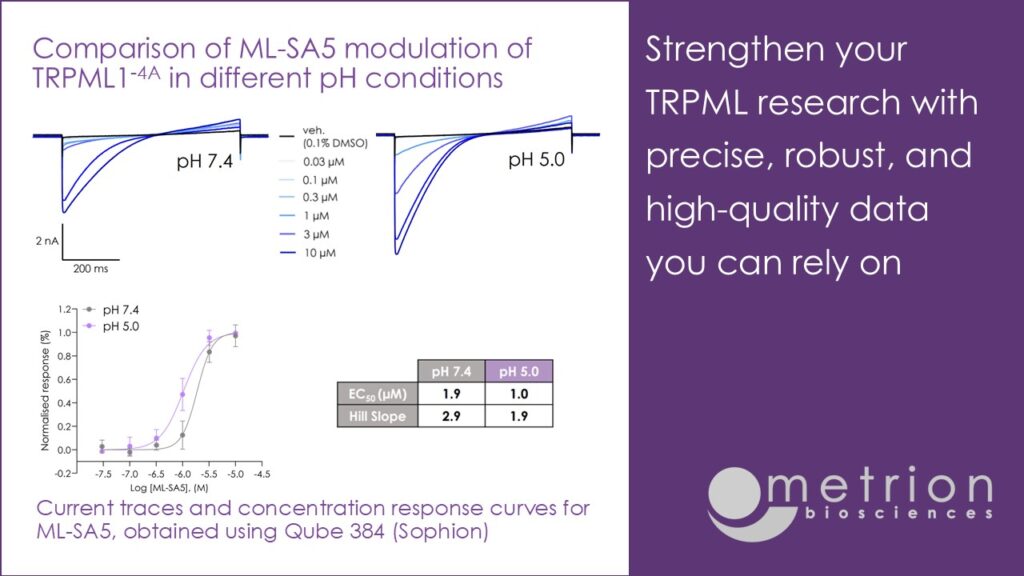Using automated patch clamp technology, we evaluate the potency and selectivity of ten Nav1.7-selective arachnid peptide toxins, which have been fused to the C-terminus (Fc region) of human IgG1.

Highly-validated screening assays developed by Metrion are capable of confidently identifying modulators of the lysosomal TRPML1 channel. The TRPML1 variant that lacks the endo-lysosomal retention sequences (TRPML1-4A) is used, enabling the channel to express at the plasma membrane. As such, channel behaviour can be successfully characterised by:
Read our case study: Development of TRPML1-4A assays across manual, automated patch-clamp, and fluorescence-based platforms
Contact Metrion to advance your preclinical drug discovery project
Using automated patch clamp technology, we evaluate the potency and selectivity of ten Nav1.7-selective arachnid peptide toxins, which have been fused to the C-terminus (Fc region) of human IgG1.
Understanding cardiac safety early is critical in drug development. In their latest poster, Jazz Pharmaceuticals, explain how they utilised Metrion’s clinically translatable cardiotoxicity assay to do exactly that.